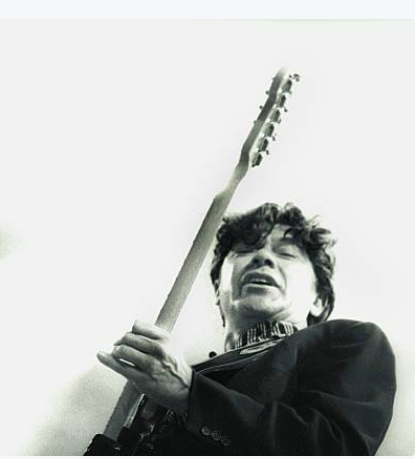There is a song that Robbie Robertson released in 1987 that only made it to the #91 spot in his native Canada, but hit #24 in the US, #15 in the UK and peaked at #8 in Belgium: Somewhere Down the Crazy River. For decades I had no idea what that song was about. I assumed a New Orleans setting due to a voodoo reference, but years later, Daniel Lanois (one of the producers) shared in an interview that the setting was Arkansas. I've not been to either place.
The song references Kokomo. I associate Kokomo with the Beach Boys singing about a fictional island off of the Florida Keys. Robertson can't be singing about that Kokomo since the Beach Boys song was released the year after Robertson's album. There is a Kokomo, Hawaii, but that can't be it either since the song describes taking a train to get there. Maybe it's Kokomo, Indiana, which is known for automobiles and canning. Why Robertson wanted to take the blue train from somewhere down the crazy river to Kokomo, Indiana, I have no idea.
What does this have to do with Keziah's Song? The beginning of Robertson's song formed the beginning of Keziah's. Or rather, what I remembered as the beginning. The actual opening lyric of Somewhere Down the Crazy River is Yeah, I can see it now/ The distant red neon shivered the heat. That's not what I'm talking about. That's a great opening —just the right mixture of mood and scene-setting — but that' is not what I remembered as the beginning of the song. For decades, I remembered a different line as the opening, which it turns out was the start of the third verse: Take a picture of this, Robertson says (says, not sings). Then he goes on to describe fields that are empty, a '59 Chevy, listening to Little Willie John in the backseat of that Chevy. He evokes a mood, and he does so right from that opening line: take a picture of this.
As a sentence, that line is perfectly complete, but it feels like a fragment. It feels incomplete. You trip over it to get to the next bit, and by then, you are hooked. What am I taking a picture of, Robbie? The word-pictures that follow are now not just Robertson's lyrics, but the listener's own imagination. It is now my empty field (urban? rural?), my '59 Chevy (rusted? What colour?), and my conception of Little Willie John and his sound.
Take a picture of this. That line stuck in my head for years, long after I'd lost the cassette. Over the years, the line grew in my imagination and memory. It also moved. I remembered it as the opening line of the song, not the start of the third verse. When I sat down to write Keziah's Song, I knew I wanted to perform that exact same trick. Take a picture of this – not a sentence fragment, but something that feels like one – and then let the reader trip over themselves to start forming their own picture from the story's beginning.
Robertson inspired me, but I couldn't be literal in how I used his work. And so that misremembered, almost-a-sentence fragment (Take a picture of this) became Consider the girl. Unlike Robertson's line, mine actually is the beginning, and its meaning extends throughout the entire tale.
The period of Keziah's Song is tumultuous to a degree that beggars the imagination. There was too much material in those few decades to try to stuff it all into one novel, and in fact, I left more than 30% of the original draft on the cutting room floor before the editor even got to it. To exhaustively write about the decades of Keziah's life would have made it exhausting to read. And so, the period is simplified by way of Jugurtha's letters, casual references to off-stage events and other tricks of the writer's trade. Through all the drama of this amazing period, the story keeps coming back to one person: Keziah. Consider the girl. That is the ask of this novel. With everything going on, consider the girl. The Middle East is turned upside down. Consider the girl. Culture and communities are transformed. Consider the girl. Invasions from the north and from the south. Consider the girl.
Five years after writing the opening to Keziah's Song, I picked up one of my favourite novels by Cormac McCarthy: Blood Meridian. It nearly gave me a heart attack. Right there, page one, line one, was a three-word opening: See the child. Did I steal a version of McCarthy's opening? Not consciously. Consciously I was trying to transmogrify what Robertson had accomplished with Take a picture of this. Unconsciously? I don't know. All writers are thieves to one degree or another. My debt to Robertson's lyrics I own quite consciously. My debt to McCarthy, if it exists, lives under the surface. I do like how he puts words together.
